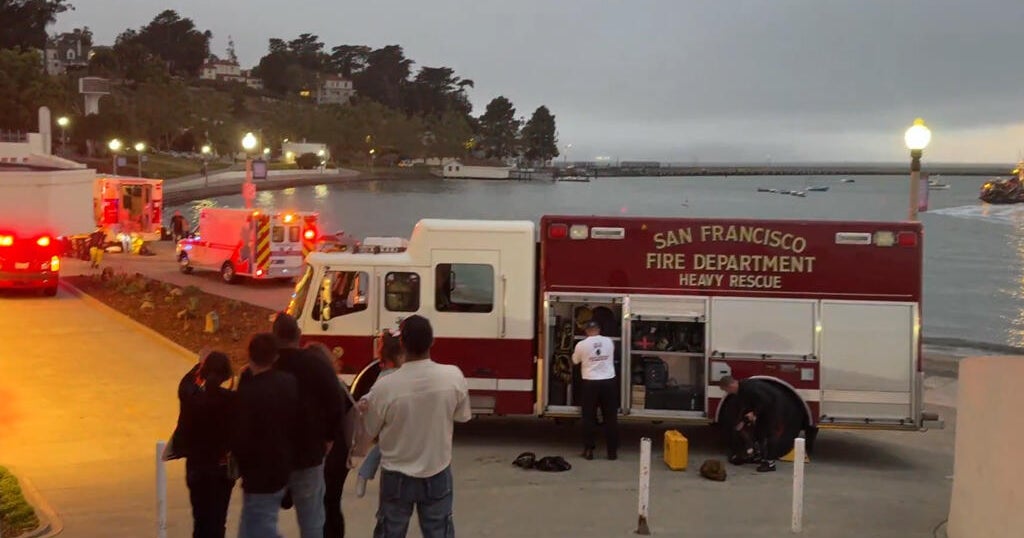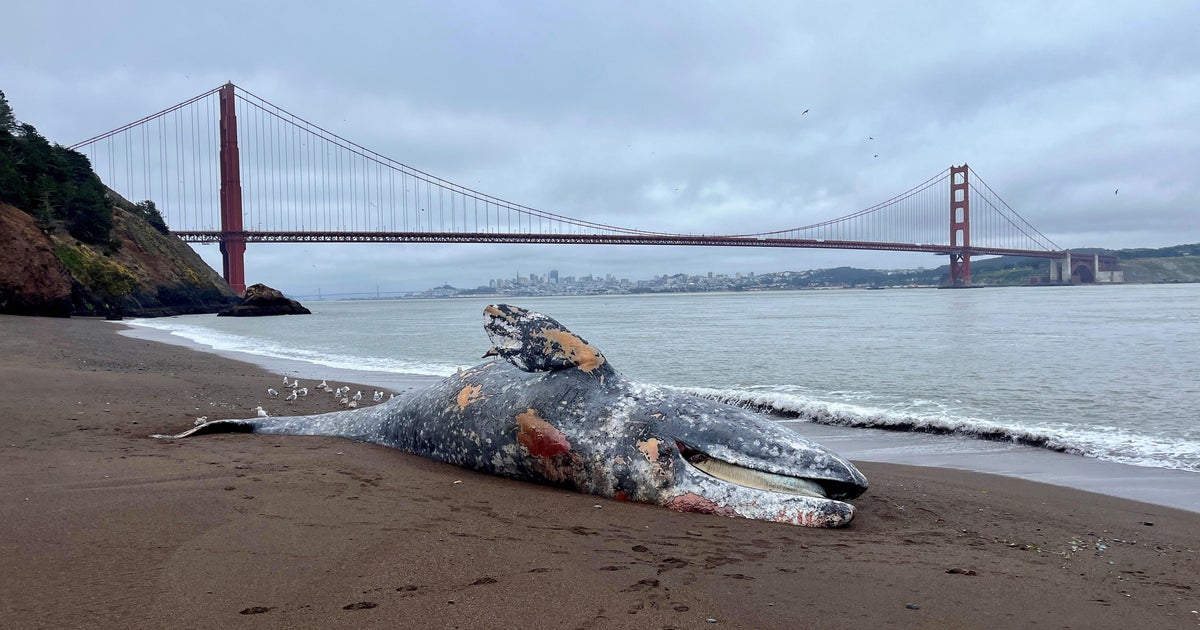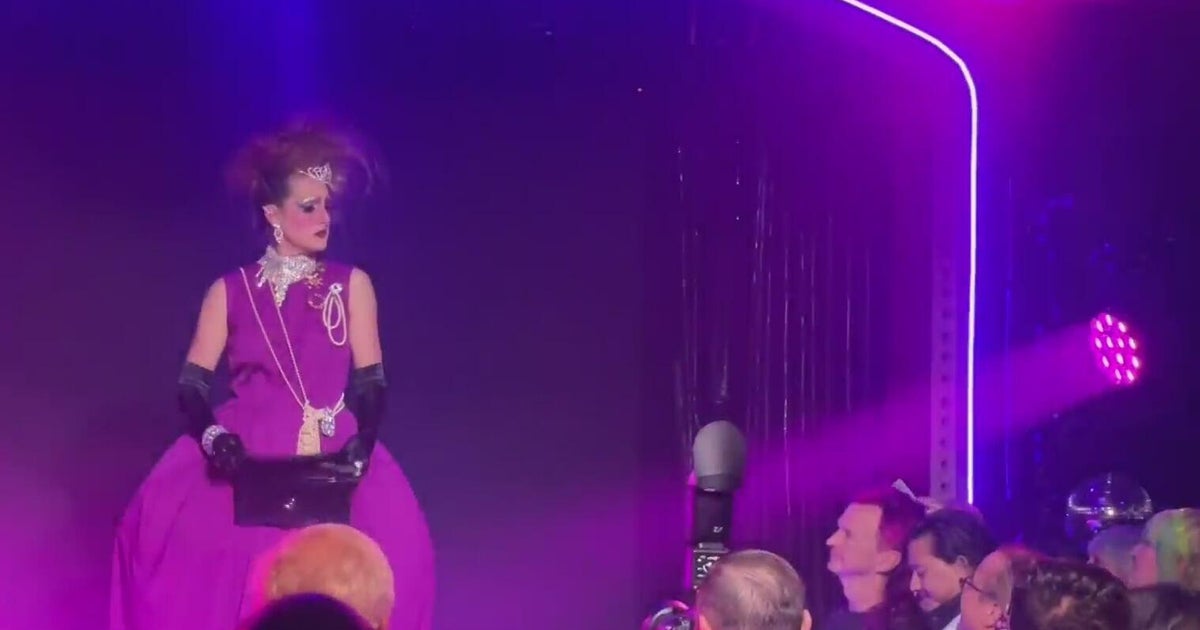San Francisco-based company gets FDA approval to produce plant-based salmon
For the third consecutive year, California has halted its commercial salmon season due to the dwindling population.
One San Francisco-based company aims to find a sustainable alternative by creating plant-based salmon, and with its recent FDA approval, the founders are even more optimistic about the future.
"This actually used to be our old neighborhood brewery, so it was the Magnolia Brewery," Arye Elfenbein, the co-founder of Wildtype, told CBS News Bay Area.
Elfenbein and the company's other co-founder, Justin Kolbeck, grow cell-cultivated salmon inside massive steel tanks in the San Francisco Dogpatch neighborhood.
"This is a food production facility, this is not a pharmaceutical facility," he said. "One of the ways in which people sometimes describe this is lab-grown. But truly, it's not. This is something that is created in a brewery; this is not a lab environment."
It all began when his team extracted cells from salmon about seven years ago.
"We haven't had to go back to the animal since then. And everything that we feed these cells also has no animal inputs at all," Elfenbein said. "We will grow the cells, giving them the same nutrients they would receive inside the fish. These are things like sugars, fats, proteins, amino acids that they use to make other proteins."
He compared the feeding process to feeding sourdough culture. The process of producing plant-based salmon can take weeks to even months.
"We use very similar beta-carotene-like molecules to both feed our cells and also they're part of what becomes the final color of the Wildtype salmon," he said.
Elfenbein has a background in medicine and science. As a cardiologist, he was interested in delving deeper into regenerative medicine.
Soon enough, he discovered a passion to help save the salmon ecosystem in California.
"We never wanted to compete with conventional fishing or fish farming or even plant-based," he said. "We see this as a complementary approach when there's such a shortfall of seafood every year, and sustainability really becomes an issue, in terms of where is our seafood going to come from in the coming decades?"
Officials with Save California Salmon said the state is seeing historically low numbers of the fish.
"So low that we're looking at possibly near extinction of several types of the salmon. And this is true across the state," Regina Chichizola, the executive director of Save California Salmon, told CBS News Bay Area.
"We're seeing water quality quickly decline and too much water is being diverted mainly to use for agriculture," she added.
Chichizola said polluted waters and dams in the ecosystem prevent the fish from surviving or properly spawning.
"Some of the species like spring salmon 80 to 90% decline. And for fall salmon, we're looking at about a 50% decline. And this is just within the last 5 to 10 years," she said.
And while innovation is key to the future, she doesn't believe cell-cultivation is the best step forward.
"We're pretty opposed to genetically engineering or cell growing of salmon because they are a wild animal that are meant to use our rivers and our oceans," Chichizola said. "If we can't keep our waters clean enough for salmon to survive, what does that mean for our ability to have clean drinking water in the state of California?"
The executive director said while there is a long road ahead, there is still hope to save the dwindling salmon population in the state.
She added that there was success in helping to save the species in the Klamath River, that flows from southern Oregon to northern California.
"When climate dams came down, salmon went up above those dams and went into the clean water sheds above there and starting spawning immediately," Chichizola said.
She hopes that the state can come together to save the salmon population organically.
"Providing them clean water, getting them passage above dams to where their water sheds are," she said. "Educating our youth and getting people out on the rivers."
"Sometimes in the city, people can get separated, knowing where their water comes from," Chichizola added. "And so we're trying to make sure that people get out there, and know ways to get involved."
Meanwhile, back at the Wildtype fishery in San Francisco, Elfenbein hopes that his company can help pave the way for sustainable alternatives.
"Something that could hopefully take the pressure off the oceans, as well, but also something hopefully could scale up and become embraced as just another source of seafood," he said. "This is one way that we can hopefully inspire a transition."
After the company's FDA approval, Wildtype salmon is being served in a restaurant in Portland, Oregon. Elfenbein adds that they are working on restaurants in Austin, Texas, and will soon be serving sashimi-grade and smoked salmon at a not-yet-announced restaurant in San Francisco.




